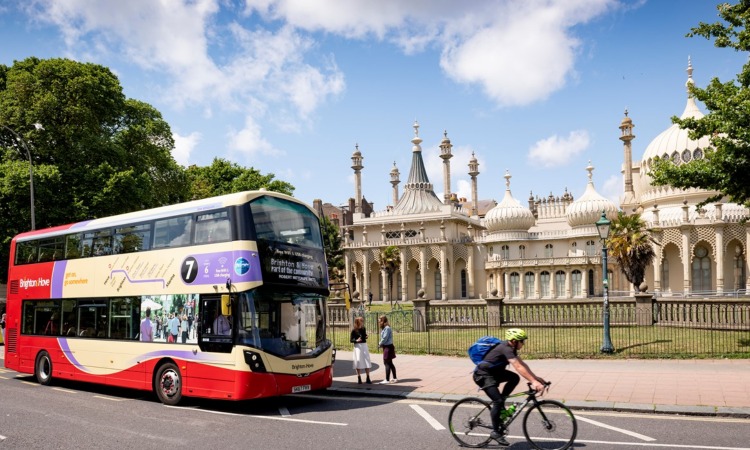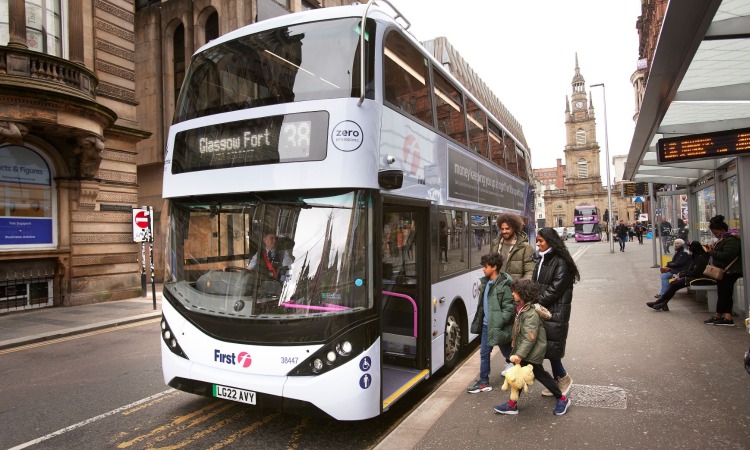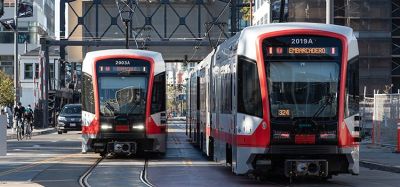UK government extends £2 bus fare cap and announces new bus funding
- Like
- Digg
- Del
- Tumblr
- VKontakte
- Buffer
- Love This
- Odnoklassniki
- Meneame
- Blogger
- Amazon
- Yahoo Mail
- Gmail
- AOL
- Newsvine
- HackerNews
- Evernote
- MySpace
- Mail.ru
- Viadeo
- Line
- Comments
- Yummly
- SMS
- Viber
- Telegram
- Subscribe
- Skype
- Facebook Messenger
- Kakao
- LiveJournal
- Yammer
- Edgar
- Fintel
- Mix
- Instapaper
- Copy Link
Posted: 20 February 2023 | Intelligent Transport | No comments yet
Millions of passengers across England will benefit from £155 million in government support to cap bus fares at £2 and maintain critical services in order to ensure that people can travel affordably.


Credit: Go-Ahead Group
The UK government has announced its plans to provide up to £75 million, so that bus operators can continue to cap single bus fares outside of London at £2 until the end of June 2023, saving passengers money and encouraging more people back on the bus.
Furthermore, the Transport Secretary has also confirmed £80 million from 1 April to 30 June 2023 to protect vital bus services that people rely on for work, education, medical appointments and shopping.
With bus patronage still at around 85 to 90% of pre-pandemic levels, there are a number of ongoing challenges for bus operators. Thus, the government is working closely with the sector on the challenges that they face with changing travel patterns since the pandemic and will continue to work on delivering the National Bus Strategy.
The government’s existing £60 million investment to cap single bus fares has already shown early signs of increased bus use, with an independent survey of 1,000 people from passenger watchdog Transport Focus showing that 7% of people say that they are using the bus more. These trends indicate that the government’s support to cap fares is a welcome intervention, helping families, commuters and all passengers to ease the cost-of-living.
Transport Focus survey reveals impact of £2 bus fare cap on cost-of-living
Prime Minister Rishi Sunak said: “I want to make bus travel affordable for all, that’s why we’re continuing to cap fares at £2 and protecting local routes, ensuring we have a modern and efficient network that’s accessible for everyone. Getting more people onto reliable and affordable buses will strengthen communities and help grow the economy – connecting people to jobs, driving pensioners to see friends and family and helping people attend medical appointments or access education.”
Transport Secretary Mark Harper said: “We’re providing £155 million to help passengers save money on fares, get more people on the bus and protect vital bus routes – helping with the cost of living and enabling people to get where they need to in an affordable and convenient way.”
The recovery grant support comes in addition to government investment of £3 billion in bus services by 2025, including over £1 billion to improve fares, services and infrastructure.
In 2021, the government had published the National Bus Strategy, and asked all English local transport authorities outside London to publish their Bus Service Improvement Plans (BSIPs), setting out local visions for the step-change in bus services that is needed, driven by what passengers and would-be passengers want.
Since then, over £1 billion has been awarded to 34 counties, city regions and unitary authorities to deliver service improvements, bus priority and ambitious fares initiatives. In addition, £5.7 billion investment has been provided to eight mayoral combined authorities in England to support integrated, cross-modal transport networks over the next five years through the City Region Sustainable Transport Settlement (CRSTS), including supporting bus infrastructure.


Credit: First Bus
Anthony Smith, Chief Executive of Transport Focus, said: “We know that around a half rely on the bus with no other option available to them, so this funding is welcome news. We also know that bus passengers want simpler, better value for money fares. Many are facing particular financial challenges at the moment. The extension of the £2 fare bus fare is a welcome step to help attract passengers back on-board and or encourage non-users to give bus a go.”
The Confederation of Passenger Transport’s CEO Graham Vidler said: “We welcome the government’s extension of the Bus Recovery Grant, which will help protect vital passenger services for a further three months. It is now critical all parties use this three-month extension to move away from short-term funding fixes and instead, build a sustainable settlement to unlock the economic, net zero and social wellbeing potential of buses.”
Janette Bell, Managing Director for First Bus UK, said: “We welcome the government’s extension of the Bus Recovery Grant, which will help protect vital services for passengers for a further three months. We also see the government’s continuation of the £2 fare cap as a good move to help make buses more attractive during the cost-of-living crisis. The £2 fare has been popular with our customers – over five million people have taken up the offer so far.”
Martin Dean, Go-Ahead’s Managing Director, Regional Bus, said: “Buses account for two thirds of public transport journeys in Britain, and communities across the country rely on them for vital connections to jobs, education and local services. The £2 fare cap is an excellent initiative to promote bus travel, and we’ve been proud to support it across Go-Ahead’s network, so it’s great news that it will continue. We’re particularly pleased that the government has extended financial support for local bus services with a further £80 million over three months. This valuable funding will safeguard hundreds of routes which are commercially challenging but important for local people.”
Related topics
Accessibility, Fleet Management & Maintenance, Mobility Services, Public Transport, Ticketing & Payments
Related modes
Bus & Coach
Related countries
United Kingdom
Related organisations
Confederation of Passenger Transport, First Bus, Go-Ahead Group, Transport Focus, UK Government
Related people
Anthony Smith, Graham Vidler, Janette Bell, Mark Harper, Martin Dean, Rishi Sunak








